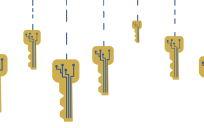Understanding how the shutdown impacts pay and benefits is a top priority for furloughed federal employees and those who are currently working without pay. Friday, Jan. 11, marks the first time these employees won’t get paychecks.
With the president stating that he’s willing to prolong the shutdown for months, even years, the likelihood of ending the shutdown with minimal economic impact to affected federal employees seems low. If the shutdown continues to Jan. 12, it will take the record for the longest shutdown in history.
In President Trump’s first primetime address on Jan. 8, he spoke at length about border security but made no mention of when he foresees the shutdown ending. He also failed to address the economic burden that this shutdown has posed for hundreds of thousands of federal employees nationwide.
On the issue of pay, Acting Director of the Office of Personnel Management (OPM) Margaret Weichert recently issued a memo freezing pay raises for high ranking government officials after reporting by The Washington Post sparked outrage over the automatic raises. The pay increases were set to take effect while federal employees were still furloughed or working without pay.
To help keep federal employees informed on how the shutdown affects pay and benefits, we’ve done the research to answer common questions about unemployment, retroactive pay, food assistance and low-interest loans for the over 800,000 federal workers who are affected by the shutdown.
When can I apply for unemployment benefits?
According to the OPM, you may apply for unemployment insurance on or after the first day you are furloughed and eligibility varies depending on the state. For example, affected federal employees who work in Maryland or the District of Columbia can receive up to 26 weeks of benefits, while in Virginia, employees may receive from 12 to 26 weeks. Once the claim is filed, the agency has 12 days to respond, and verify your eligibility. The OPM fact sheet states that “in general, furloughed employees should be eligible as long as all other state eligibility factors are met.”
Do federal employees have to repay received unemployment benefits if Congress decides to retroactively pay employees?
The answer varies based on state, but most states, including D.C., “have laws mandating that federal employees repay any unemployment insurance (UI) benefits they receive after getting retroactive pay from a shutdown,” according to OPM guidance. In some states, federal employees may be required to repay their benefits all at once or risk having their wages garnished to make up the difference. Other states do not allow federal employees to cancel their UI claims once they have begun receiving them even if a shutdown ends. Further questions about unemployment are answered in these responses from OPM.
What happens to health and life insurance benefits?
Health benefits continue for no more than 365 days when employees are in a non-pay status, and the government contribution continues during that period. The government must also advance the employee share of a premium from the employee’s salary. Employees must decide between paying the agency directly or allowing the premiums to accumulate and be withheld from their pay after returning to their normal work status. Life insurance coverage continues for 12 months in a non-pay status without cost to employees or the agency.
Note that the non-pay status may be continuous or broken by a return to duty for fewer than four consecutive months in a pay status.
What has currently been introduced concerning retroactive pay?
A bipartisan group of House and Senate legislators re-introduced a bill that would guarantee retroactive pay for federal employees during the government shutdown. On Jan. 10, The Government Employee Fair Treatment Act passed by voice vote in the Senate without objection. The legislation ensures back pay for furloughed federal employees and President Trump indicated that he would sign it. The legislation was brought before the Senate by Sens. Ben Cardin (D-Md.) and Susan Collins (R-Maine) and a bipartisan group of 28 additional senators, would ensure back pay for excepted and furloughed federal employees during this shutdown and future ones. “Our legislation would guarantee that [civil servants] are paid retroactively as soon as appropriations are restored,” Collins said. “I am also continuing to discuss with the White House and my colleagues on both sides of the aisle ways to bring an end to the shutdown so that furloughed federal employees can return to work as quickly as possible.”
In the House, Reps. Don Beyer (D-Va.) and Rob Wittman (R-Va.) reintroduced the Federal Employee Retroactive Pay Fairness Act, their own take on the Cardin-Collins bill.
Neither bill covers retroactive pay for federal contractors. However, on Jan. 10, Sens. Warner and Kaine, along with 32 colleagues, wrote to the Trump administration encouraging back pay for low and middle-income workers employed by contractors.
What will happen to the nation’s food assistance program?
Senior administration officials are looking for ways to prevent the program from running out of money, according to The Washington Post. The Trump administration confirmed on Tuesday that the Agriculture Department will be able to pay out benefits for all of February.
Which financial institutions are offering low-interest rate loans to impacted government workers?
Launch Federal Credit Union is offering zero-percent interest rate loans of up to $3,000 to federal government employees. Navy Federal Credit Union is offering a zero-percent interest rate loan that gets paid back when pay is resumed, with a limit of $6,000.
The U.S. Employees Credit Union is offering interest-free loans to all impacted members for 60 days, without looking at credit score. Justice Federal Credit Union is offering low-interest rate loans to workers at the Justice and Homeland Security departments. FedChoice is issuing short-term loans with low interest rates and waiving early-withdrawal fees on selected certificates of deposit.
Some banks have made special considerations with affected government workers in mind. A spokesman for Wells Fargo has confirmed that the bank will reverse monthly service and overdraft fees for affected federal employees, although they will not offer any special loans. Chase has also stated that they will waive fees for those who use direct deposit.
Harvest, a start-up that applies artificial intelligence to bank fee negotiation, is available to government workers for free until the government reopens (the 25 percent cut of reimbursed charges has been waived).
Will tax refunds be delayed?
In a Jan. 7 briefing from the White House, Office of Management and Budget Deputy Director Russell Vought stated that “tax refunds will go out. They will not be non-excepted activities. That’s something that we will be sending out guidance on that we’re fixing from past administrations.” Some Democrats call the move legally dubious.
Some 86 million households received tax refunds totaling more than $243.6 billion by April of last year from the IRS. According to the IRS contingency plan, activities for the tax filing season will continue despite 70,000 furloughed IRS workers. The IRS has not yet released any plans to bring back some furloughed workers.
You can find all of GovLoop’s shutdown coverage here.
Photo Credit: Unsplash




Thank you for the insights about pay and benefits, Sherin!